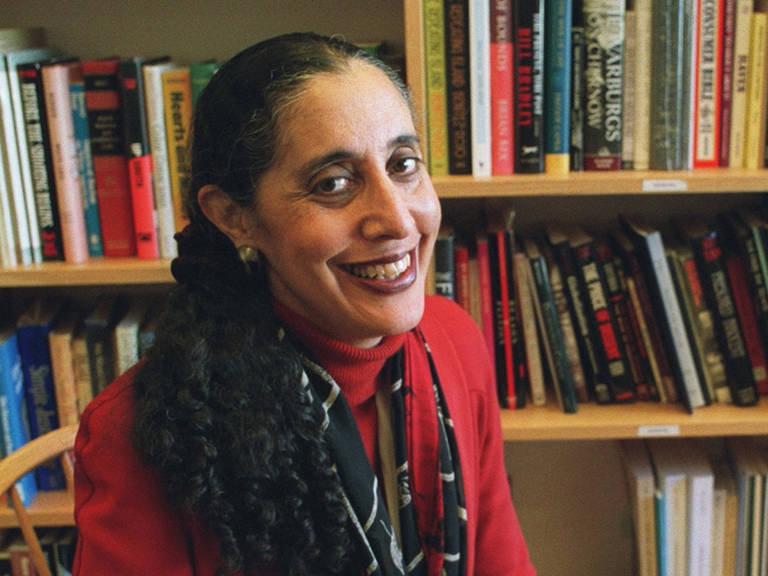Legal Defense Fund Breaks U. Mississippi Barrier
Press Release
June 11, 1964

This item is featured in:
Cite this item
-
Press Releases, Loose Pages. Legal Defense Fund Breaks U. Mississippi Barrier, 1964. b3ae2792-bd92-ee11-be37-6045bddb811f. LDF Archives, Thurgood Marshall Institute. https://ldfrecollection.org/archives/archives-search/archives-item/29a47c78-f165-49ea-9bc4-37e9b8eb93e9/legal-defense-fund-breaks-u-mississippi-barrier. Accessed February 27, 2026.
Copied!
~ 10 Columbus Circle
New York, N.Y. 10019
JUdson 6-8397
NAACP
Legal Defense and Educational Fund
June 11, 1964
PRESS RELEASE
President
jan Knight Chalmers
Associate Counsel
Constance Baker Motley
LEGAL DEFENSE FUND BREAKS
U. OF MISSISSIPPI BARRIER
JACKSON, MISS.--A federal judge this week issued a temporary
restraining order requiring University of Mississippi officials
to admit 18-year old Cleveland Donald, Jr., a Negro transfer
student, for the University's 1964 summer session, which began
today. Acting on a motion brought by NAACP Legal Defense Fund
attorneys, Judge William Harold Cox of the Southern District
of Mississippi enjoined further efforts to block Donald's im-
mediate admission, thereby opening the door for the third
Negro to enter that state's university.
In 1962, James H. Meredith became the first Negro to enter
a previously segregated Mississippi college after lengthy
litigation. Meredith graduated in August, 1963. In June,
1963, Cleve McDowell became the first Negro to enter the Uni-
veristy of Mississippi Law School, but was expelled in Septem-
ber after being apprehended with a gun on campus.
Donald is thus the only Negro in attendance at Ole Miss,
as Legal Defense Fund attorneys are currently appealing
McDowell's expulsion to federal court, They contend that
McDowell had a right under state law to have a gun while tra-
veling on the state highways.
Efforts to Continue
Legal Defense Fund attorney Derrick A. Bell, who appeared
last week on Donald's behalf, indicated that he was extremely
pleased with Judge Cox's decision and stated, "We shall con-
tinue our efforts to convince federal judges at the District
Court level of the correctness of our position in civil rights
cases." Mr. Bell was joined in the action by Director-Counsel
Jack Greenberg and Associate Counsel Constance Baker Motley
in New York and by Carsie A, Hall, Fund cooperating attorney
in Jackson.
(more)
Jesse DeVore, Jr., Director of Public Information—Night Number 212 Riverside 9-8487 So
Legal Defense Fund Breaks -2- June 11, 1964
U. of Mississippi Barrier
Donald has completed one year at predominantly Negro
Tougaloo College in Jackson and plans a pre-law course, with
a major in political science. He applied for transfer in
February, 1964. His application was provisionally approved
by University officials in May, but before final admission
could be obtained, the Board of Trustees of State Institu-
tions of Higher Learning intervened.
The Board, a state body whose members are appointed by
the Governor, ordered the University to defer action on
Donald's application while they sought an opinion in federal
court as to whether the Meredith decision required them to
admit all Negroes who applied. Legal Defense Fund lawyers
contended that the prior decision had been a "class action,"
requiring the admission of all qualified Negroes, but rather
than litigate this issue--which would probably have required
a long time--they brought on June 6th a new action seeking
immediate relief for Donald, whose education will not be
delayed.
In support of their motion, Defense Fund attorneys ob-
tained affidavits showing that the University officials had
made careful preparations for Donald's admission and protec-
tion, and that delaying his entrance would not only be
detrimental to him scholastically, but would interfere with
the University's plans to enroll him peacefully at the school.
They further argued that the Board's action was designed mere-
ly to perpetuate racial segregation at the University.
Ruling in favor of the Legal Defense Fund attorneys,
Judge Cox gave little consideration to the Board's contention
that the admission of Donald would lead to riots and possible
bloodshed on campus and elsewhere in Mississippi. The
Defense Fund had noted that the large number of teachers,
the high proportion of married students and the scholastic
pressures of the accelerated summer program made it unlikely
that Donald's admission would occasion events similar to
those occurring at Meredith's admission.
=5c0-e
